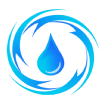Water loss due to leaks and inefficiencies in urban water systems is a major challenge globally. Research indicates that approximately 20-30% of treated water is lost in distribution networks (Liemberger & Wyatt, 2019). Leveraging Internet of Things (IoT) and smart leak detection systems offers an advanced solution to reduce water waste by enabling real-time monitoring, predictive maintenance, and improved resource management.
IoT in Urban Water Management
IoT applications in urban water management include deploying sensors across water networks to monitor flow rates, pressure, and temperature continuously. These sensors collect data transmitted to central management systems, providing utilities with real-time information on system health. A study by Mekonnen & Hoekstra (2016) found that IoT-enabled monitoring can reduce water loss by up to 40% in highly urbanized regions, supporting cities facing high water stress.
Smart Leak Detection Technologies
Smart leak detection systems use acoustic sensors, machine learning algorithms, and hydrostatic pressure monitoring to identify and locate leaks. Acoustic sensors detect changes in sound waves caused by leaks, while machine learning enhances accuracy by analyzing patterns. Research conducted in London’s water network demonstrated that acoustic sensors combined with machine learning reduced detection time by 70%, minimizing water loss and repair costs (Kalanithy & Jiang, 2018).
Case Studies and Real-World Applications
In Singapore, PUB (the National Water Agency) uses IoT and smart metering to monitor water use, allowing for prompt leak detection and repairs. The result has been a water loss rate of only 5%, among the lowest globally (Tortajada, 2006). Similarly, Los Angeles’ Department of Water and Power implemented a network of pressure sensors, reducing water loss by 15% and saving millions in infrastructure costs annually.
Future of IoT in Water Management
To maximize IoT’s impact on urban water systems, cities must invest in advanced sensor technology, data analytics, and integration platforms. Subsidies and incentives for IoT adoption, alongside regulatory standards, can accelerate water efficiency in urban areas. By fostering real-time, data-driven water management, IoT and smart leak detection can make significant strides toward sustainable urban water use.








